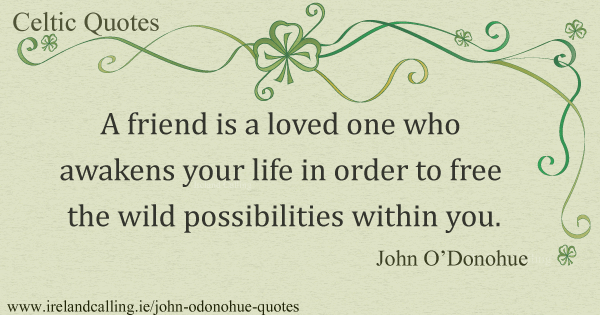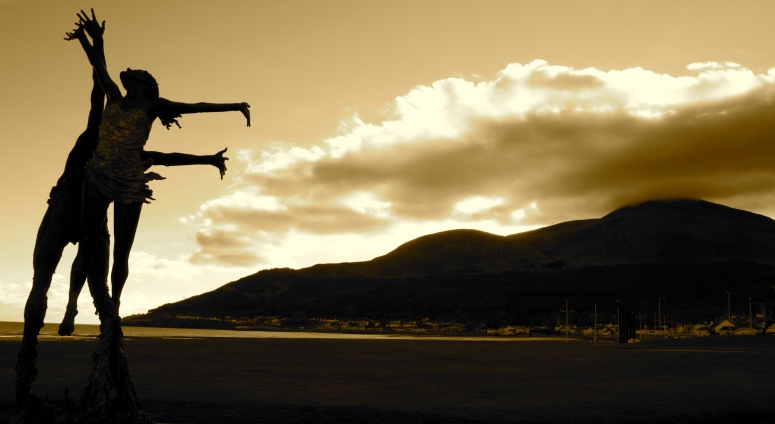
Category Archives: awake
Surprise
I was alerted to this quote by mindfulbalance today (http://mindfulbalance.org/2016/01/07/surprising/).
“We need to practice waking up to surprise. I suggest using this simple question as a kind of alarm clock: “Isn’t this surprising?” “Yes, indeed!” will be the correct answer, no matter when and where and under what circumstances you ask this question. After all, isn’t it surprising that there is anything at all, rather than nothing? Ask yourself at least twice a day, “Isn’t this surprising?” and you will soon be more awake to the surprising world in which we live.” David Steindl-Rast, Awake, Aware and Alert
It reminded me or brought to light (and life) one of the attitudes cultivated with mindful awareness practices: the beginner’s mind. How may we cultivate this attitude of openness and freshness in each moment of our being? As one of our basic emotions, surprise often gets lost. Just like in the movie Inside-Out, it didn’t make the line-up. I found this an inspiring quote that brought freshness to that attitude of ‘beginner’s mind’ and how I may cultivate it in a conscious way. Asking the question: Isn’t this surprising? I may learn to expect and embrace uncertainty; decondition my wired brain that seeks out certainty at each turn. And be grateful for each moment experienced just as it is. Time to try it and see!

Unconditional

Expectations abound in relationships. These seem to stem from unconscious beliefs and fear-habits of the mind, founded on generational conditioning and individual personal stories. Unsurprising then the pain of vulnerability and suffering that arises from relationships? This simply part of our common human experience. Just as adaptive relating is key to our surviving and thriving.
Perhaps in choosing relationships, we may practice creating space to grow and to be. Separately together somehow. In spacious awareness. The being not attached nor holding expectations of each other seems paradoxical from this perspective. Perhaps accepting inclination in this direction is good enough right now! And at least inviting awareness of the suffering, from these expectations of permanence and habits of attachment, may help to hold this suffering with care and compassion and we live as best we can in each moment of our being. The possibility of joyful freedom is a seductive invitation to remember to relate with awareness or to couple ‘consciously’. Free to dance across the skies, gaining in strength from and with each other. Possibility or romantic fantasy?! The adventure continues …
“Parting moments are often the most profound in a relationship. Every relationship must end eventually, even if its because of death. Thinking this, our appreciation for the causes and conditions that provided each connection is heightened. It is especially powerful if one partner has a terminal illness. There is no illusion of ‘forever’ and that is surprisingly liberating, our caring and affection become unconditional and our joy is very much in the present moment” – Dzongsar Khyentse, the Buddhist Rinpoche.
Craving and the wedge of awarenessl!
I listened to Judson Brewer at the recent Mindfulness Summit online and how mindfulness training can help with addictive behaviour. A few things stuck with me:
When we get caught up in thoughts perhaps getting lost in daydreaming or extending on to stress, then performance is reduced.
The problem is ultimately, one of craving: both for the pleasant to continue and for the unpleasant to go away. Ah we all know it well. This is what we are caught up with in the stories weaved in our minds.
He carries on that essentially we are addicted to ourselves – it’s how we are wired! So if we use the power of our mighty evolved brain to understand this looping, the self-referential obsessions and how this looping actually sets down and repeats these pathways in the brain, this is how we can slot in this ‘wedge of awareness’ and we can choose not follow through with habitual patterns of behaviour. We can notice the self and let it go!
Some sage words are offered – ‘you must not fool yourself and you are the easiest to fool’! Tell me about it. So when I explore my experience with openness, the layers and layers of conditioning, perception and protective reactions mean that I may believe I have uncovered an habitual pattern yet this may only be another veil to be uncovered through further and ongoing inquiry.
And through all this:
“One thing to remember about chronic stress is that it’s only our thoughts that make it seem so. Viewed mindfully, no situation is truly chronic — there are always calm moments to notice and be present for. Moments that can be lived in with ease.”
(Elissa Epel PhD, quoted in Monitor on Psychology.)
When I searched online for a fitting image for ‘the wedge’ – I got this and it really struck me … this wedge of awareness is awe-inspiring, is massive, can be exhilarating and frightening in equal measure, can feel overwhelming and so awareness can be avoided and grasped for too. Yet it also comes and goes. Take a breath and do the best you can!
How are we relating to our present moment? Let it be simple and easy
Listening to the Mindfulness Summit hosted by MrsMindfulness. Today’s speaker was Joseph Goldstein – one of the key teachers who brought the practice of mindfulness to the west via the Insight Meditation centre. i experienced him as the embodiment of ‘simple and easy’ … ‘gentle and calm’ in his presentation. 3 nuggets resonated with me today:
- It is not enough to recognise and tune in to the present moment experience, we need to take the next step – to investigate with kindly interest as to how we are relating to our experience. Are we clinging? Pushing away? Are we truly accepting and allowing our present moment experience?
- Let the practice be everyday – is there integration? an unfolding in our daily actions off the cushion? In our speech? our interactions with others?
- Let the practice be simple and easy. It’s the non-striving attitude or reaching/grasping. Experience the suffering as it is with discipline and perseverance to wake up.
Catching mindfulness
Mindfulness needs to be caught rather than taught. This is something those who have many years of experience often advise. This is the experiential element I guess, the need to experience the moment, the physicality of the body in the present; and what happens in each of those moments, rather than thinking about the idea of this experience.
I notice as I read and finish my book – I am catching, what seem to me to be, gems of mindfulness wisdom. As I finish ‘Cutting for Stone’ by Abraham Verghese, these words catch my attention:
- “The mind is fickle …. the body is resilient” … This reminds of the narrative and the direct experience aspects of our experiences, the idea that thoughts and emotions are not facts, are often deceptive, distorted by our conditioning while the body does not lie, the physical sensations in our body is the present moment. And the body can heal itself in many ways, if we tune in and listen, if we let ourselves be from time to time.
- “Attentive to the body, attentive to the [human] being” … This reminds me again of our narrative judging mind – how quickly we form impressions, we scan our memories and preconceptions to judge this situation, this person, often projecting onto others our story of them, and with that missing the being that is here, now. Also it is reminding me of the cue to and the pathway to experiencing the present moment as it is, is to attend to the body; this is our way in to our ‘being mode’ of mind. Becoming aware, noticing how we are caught up in our story, wanting this person to be a different way, tuning in to our body, thoughts and emotions, this awareness is our way to experiencing a mindful presence with others.
- “The closer you look the more you see what is revealed…only the imagination [thinking mind] limits” … Again, this reminds me of the narrative judging mind, that can close us off to our present moment experience. Remembering the raisin exercise, my prejudging mind – I already know that this is a raisin and I don’t like them! Yet taking my beginner’s mind to this object, using my senses of taste, touch, smell, sight, I discover the intricacies and delights of this juicy, sweet, moment of that first time experience that I would have otherwise missed. My thinking mind often restricts my choices, without me even realising, and thus my life experience is restricted.
Rather than chasing my head, trying to catch up with my thoughts and emotions, trying to predict and analyse the whys; when I catch these ponderings, this is my opportunity, my awareness; and I can choose to notice my body, via the senses, the breath, to connect with this present moment, my being; and in this present moment experience, I can reconnect my body and mind. This is my adventure.


